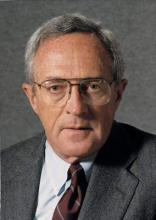Few of my readers were around when Medicare was signed into law in 1965 by President Lyndon Johnson. Mr. Johnson was into his first elected term as president, having first taken the oath of office with the assassination of John F. Kennedy in November 1963.
Hardly a darling of the liberal left, he was maligned as the perpetrator, if not for the expansion, of the Vietnam War. He was elected with the largest presidential plurality in history, receiving 61% of the votes, and he carried with him a solid Democratic Congress bolstered by a large block of solid Southern Democrats, a firmament from which he had emerged. He can be credited for the most far-reaching social legislation of the 20th century, second only to Franklin Delano Roosevelt of the 1930s. Johnson was able to move the Civil Rights Act of 1964 and the Voting Rights Act and Medicare Act through Congress in 1965, the latter of which we celebrate this year.
At the time of passage of Medicare, 35% of Americans over 65 had no health insurance, either because they found insurance unaffordable or because of preexisting illness. Health insurance premiums for the elderly cost roughly three times more than did those for younger individuals. With many of the elderly living on Social Security alone, health insurance was an impossibility. If they needed care, they might find it at the emergency department of their local hospitals.
The battle for the passage of Medicare was formidable. In contrast to the passive role of the American Medical Association in the passage of the Affordable Care Act, Medicare was, to put it mildly, vigorously opposed by most doctors and by the AMA, which viewed it as the harbinger of long-anticipated socialized medicine. It ended up being far from it.
Medicare provided a pathway to an economic bonanza for the practicing physician and to hospitals that they could never have imagined. It immediately expanded the patient population and allowed enterprising and not-so-enterprising doctors and hospitals to run up the costs of health care by strengthening the fee-for-service style of medical care. Doctors, hospitals, and patients had no concern for cost: Medicare paid for everything.
Hospitals found Medicare a ready source of income. Doctor and hospital bills were based on the usual cost to each in their respective communities. Medical educators as well as house staff also saw their income lifted as a result of the federal government’s paying for a large part if not all of the cost of house staff education. Even the small number of physicians who opted out of Medicare, because of the red tape or to preserve their independence from the federal government, benefited. Their fees increased as the payment schedules of Medicare increased in their communities.
One of the by-products of Medicare was the end of hospital segregation. For those of you who were not around then, you can imagine what an impact that had on hospitals and doctors in both the North and the South.
Over time, Medicare expanded its footprint to include treatment of chronic kidney disease at any age, as well as drug coverage. I would guess that most Americans over 65 (this writer included) love Medicare. And doctors? Well, they still grumble about it.
With the recent readjustment of physicians’ Medicare reimbursement rates, the door has been opened to new initiatives based on quality of care. No matter what your political persuasion, it is clear that Americans cannot afford Medicare as we know it. Physicians undoubtedly will find their fee-for-service style of reimbursement curtailed as we learn the definition of “quality care standards.” Quality standards will not only define clinical performance, but will also include cost of rendering that care. So long to the world of fee-for-service reimbursement.
Dr. Goldstein, medical editor of Cardiology News, is professor of medicine at Wayne State University and division head emeritus of cardiovascular medicine at Henry Ford Hospital, both in Detroit. He is on data safety monitoring committees for the National Institutes of Health and several pharmaceutical companies.


